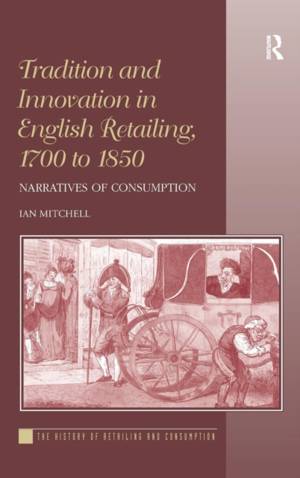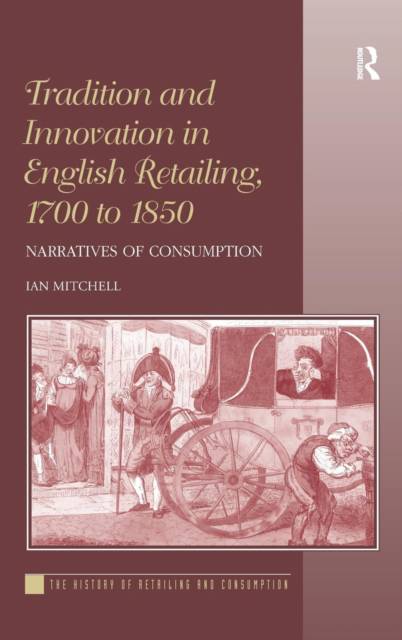
- Afhalen na 1 uur in een winkel met voorraad
- Gratis thuislevering in België vanaf € 30
- Ruim aanbod met 7 miljoen producten
- Afhalen na 1 uur in een winkel met voorraad
- Gratis thuislevering in België vanaf € 30
- Ruim aanbod met 7 miljoen producten
Zoeken
Tradition and Innovation in English Retailing, 1700 to 1850
Narratives of Consumption. Ian Mitchell
Ian Mitchell
€ 305,45
+ 610 punten
Uitvoering
Omschrijving
Three decades of research into retailing in England from the seventeenth to nineteenth centuries has established a seemingly clear narrative: fixed shops were widespread from an early date; 'modern' methods of retailing were common from at least the early eighteenth century; shopping was a skilled activity throughout the period; and consumers were increasingly part of - and aware of being part of - a polite and fashionable culture. All of this is true, but is it the only narrative? Research has shown that markets were still important well into the nineteenth century and small scale producer-retailers co-existed with modern warehouses. Many shops were not smart. The development of modern retailing therefore was a fractured and fragmented process. This book presents a reassessment of the standard view by challenging the usefulness of concepts like 'traditional' and 'modern', examining consumption and retailing as inextricably linked aspects of a single process, and by using the idea of narrative to discuss the roles and perceptions of the various actors in this process - such as retailers, shoppers/consumers, local authorities and commentators. The book is therefore structured around some of these competing narratives in order to provide a richer and more varied picture of consumption and retailing in provincial England.
Specificaties
Betrokkenen
- Auteur(s):
- Uitgeverij:
Inhoud
- Aantal bladzijden:
- 240
- Taal:
- Engels
- Reeks:
Eigenschappen
- Productcode (EAN):
- 9781409443209
- Verschijningsdatum:
- 4/02/2014
- Uitvoering:
- Hardcover
- Formaat:
- Genaaid
- Afmetingen:
- 156 mm x 234 mm
- Gewicht:
- 517 g

Alleen bij Standaard Boekhandel
+ 610 punten op je klantenkaart van Standaard Boekhandel
Beoordelingen
We publiceren alleen reviews die voldoen aan de voorwaarden voor reviews. Bekijk onze voorwaarden voor reviews.











